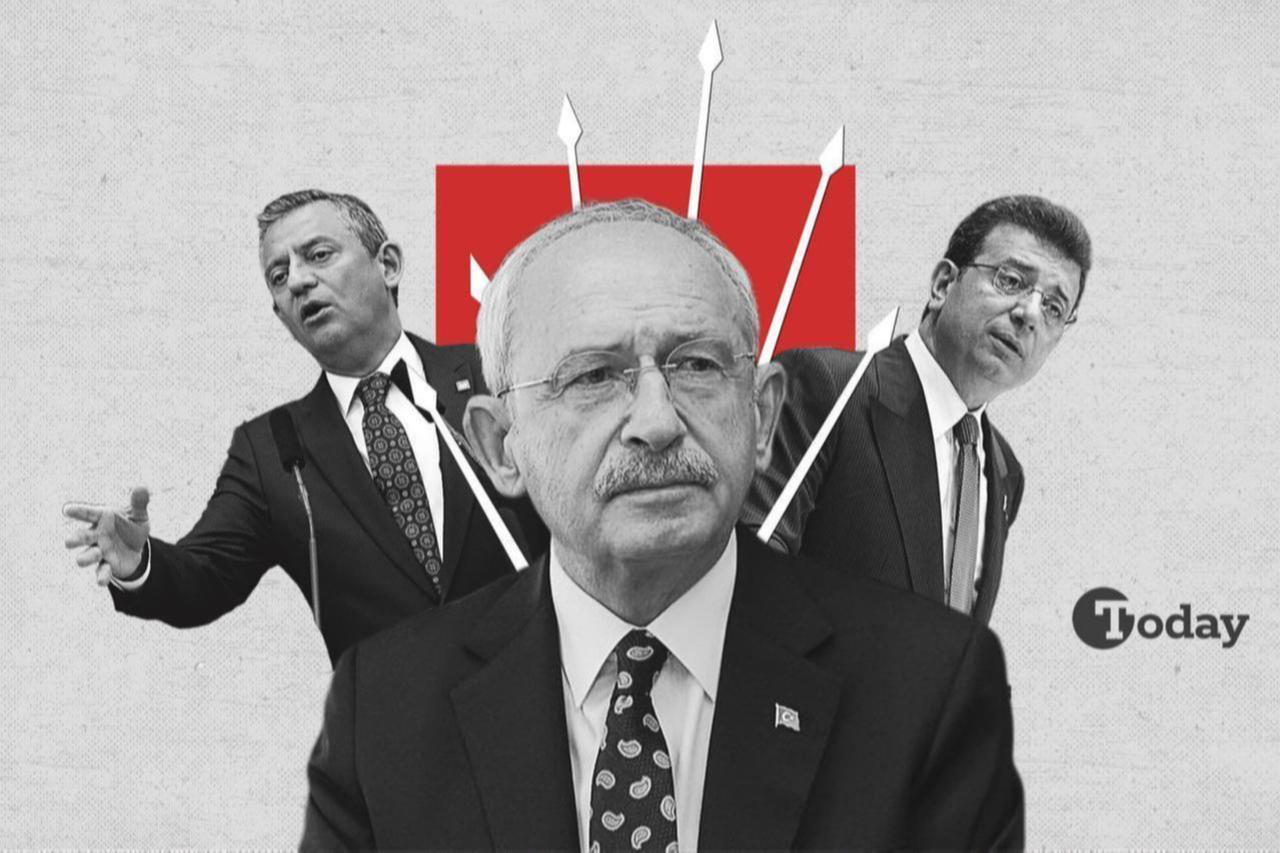
To an outside observer, Türkiye's main opposition Republican People’s Party (CHP) might appear to be charting a course of renewal. After the 2023 elections, the party’s leadership changed, youthful messaging was rolled out, and a new opposition language was reportedly being crafted.
Behind the scenes, however, that transformation has proved anything but smooth. In 2023, CHP ended Kemal Kilicdaroglu’s 13-year tenure and elevated Ozgur Ozel to the party leadership; what was framed as renewal has since been overshadowed by legal battles, corruption allegations, trustee appointments, and bitter leadership clashes.
Today, CHP faces not only an internal reckoning but a crisis that could determine the future of opposition politics in Türkiye.
This article will trace events from the Kilicdaroglu era through Ozgur Ozel’s rise, and from courtroom fights to the trustee crisis—answering, as clearly and contextually as possible, the question: “What is happening inside CHP?”
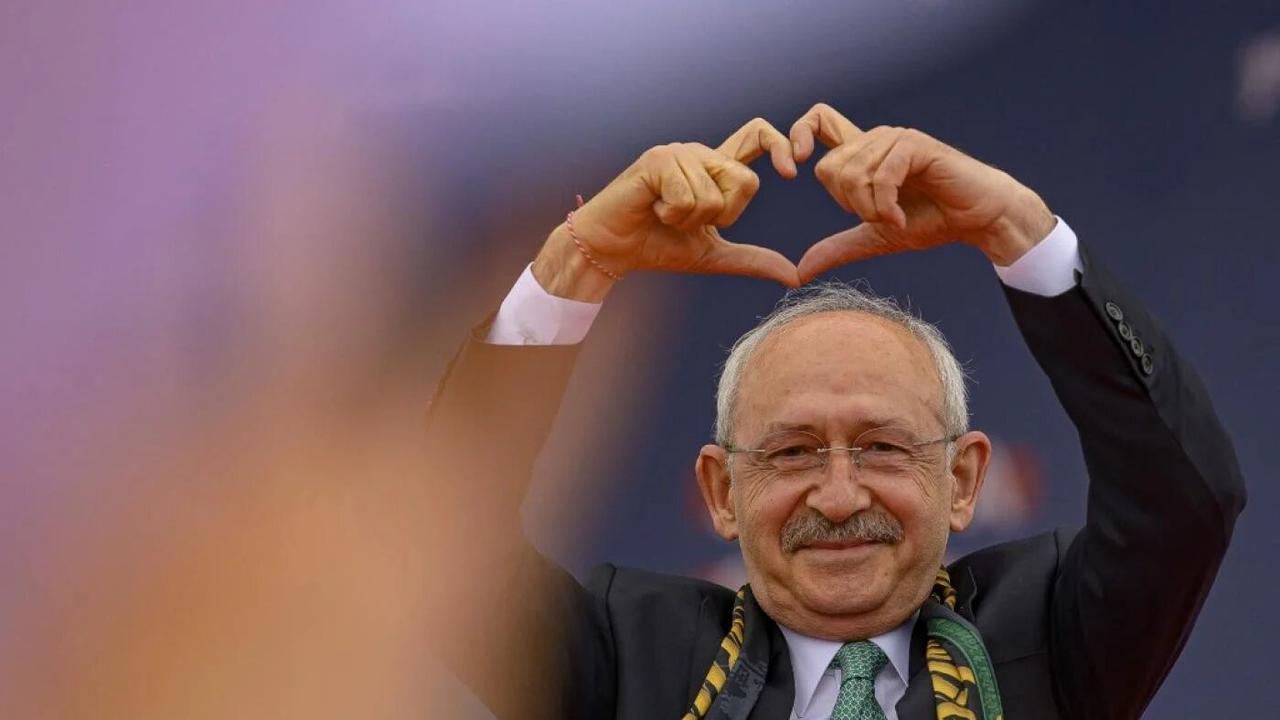
Kemal Kilicdaroglu assumed leadership of CHP in 2010 following the resignation of Deniz Baykal. Over the next 13 years, he attempted to reshape the party ideologically and organizationally.
Under his watch, CHP leaned into alliance politics, most notably during the 2019 local elections when cooperation with the Good Party (Iyi Party) and indirect support from the Peoples’ Democratic Party (HDP) allowed the opposition to capture major municipalities such as Istanbul and Ankara.
Kilicdaroglu also adopted a softer, conciliatory style of opposition, often avoiding sharp polemics and aiming to reposition CHP closer to a broad-based social democratic identity.
But longevity brought challenges. By 2023, questions mounted about whether Kilicdaroglu could still energize voters, particularly the younger, urban demographic who sought a bolder opposition.
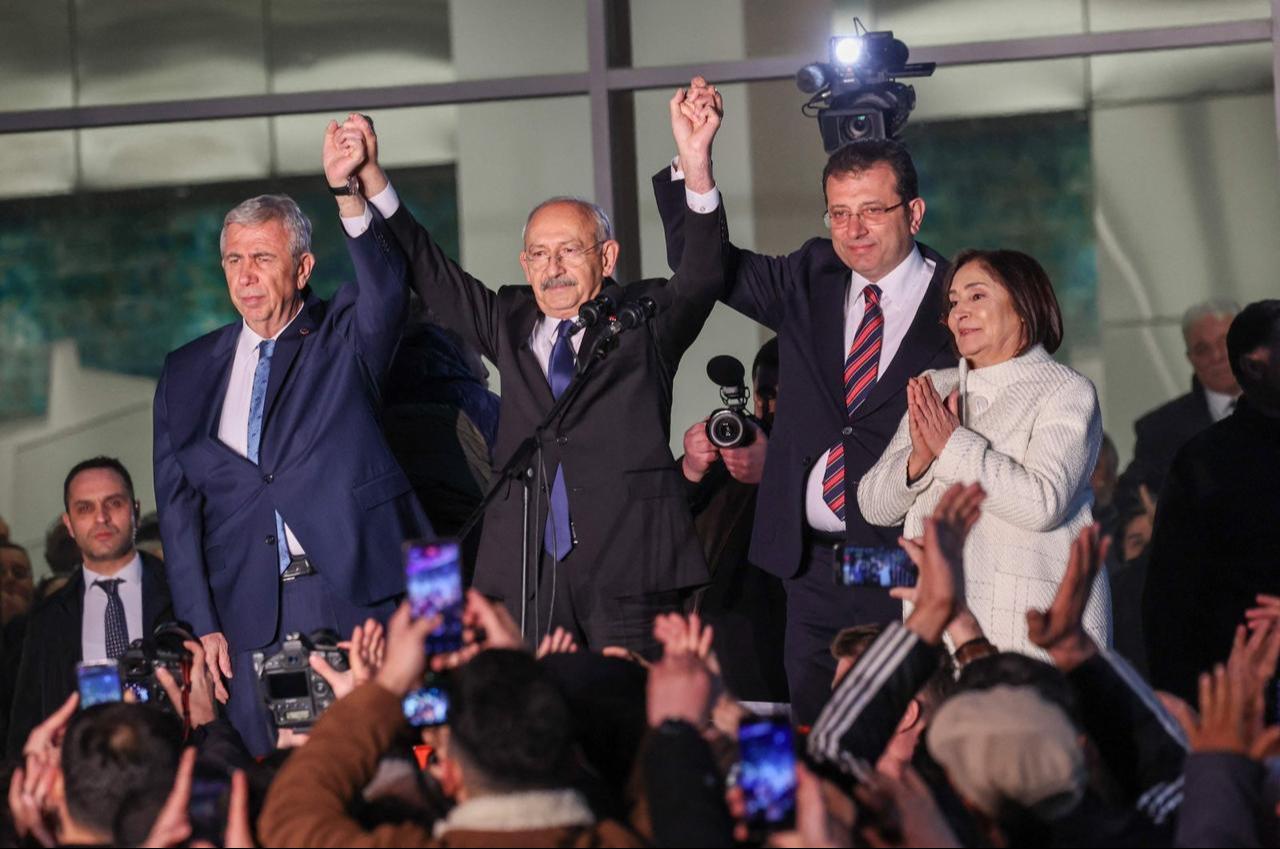
2023 Elections: A turning point
Kilicdaroglu ran as the joint candidate of the Nation Alliance (Millet Ittifaki) against President Recep Tayyip Erdogan. His defeat was not just a personal setback; it triggered widespread disappointment among opposition supporters.
Calls for leadership change grew louder. While many demanded immediate resignation, Kilicdaroglu resisted, arguing that “the captain’s duty is to bring the ship safely to port,” signaling his intent to remain at least until the 2024 local elections.
This stance split CHP into two visible camps:
Imamoglu’s maneuver and Ozel’s rise
Istanbul’s former mayor Ekrem Imamoglu became a pivotal player. Rather than openly challenging Kilicdaroglu, he called for a “smooth change,” signaling his preference for generational renewal without direct confrontation.
Soon after, Ozgur Ozel, then CHP’s parliamentary group leader, entered the scene. With Imamoglu’s backing, Ozel positioned himself as the face of the reformist bloc, emphasizing shared aspirations with Imamoglu while formally announcing his candidacy.
Kilicdaroglu, sensing threats to his authority, responded by proposing structural changes. He sought to centralize control by appointing regional coordinators tied directly to the party headquarters.
Yet instead of stabilizing his position, this move was widely perceived as an effort to cling to power
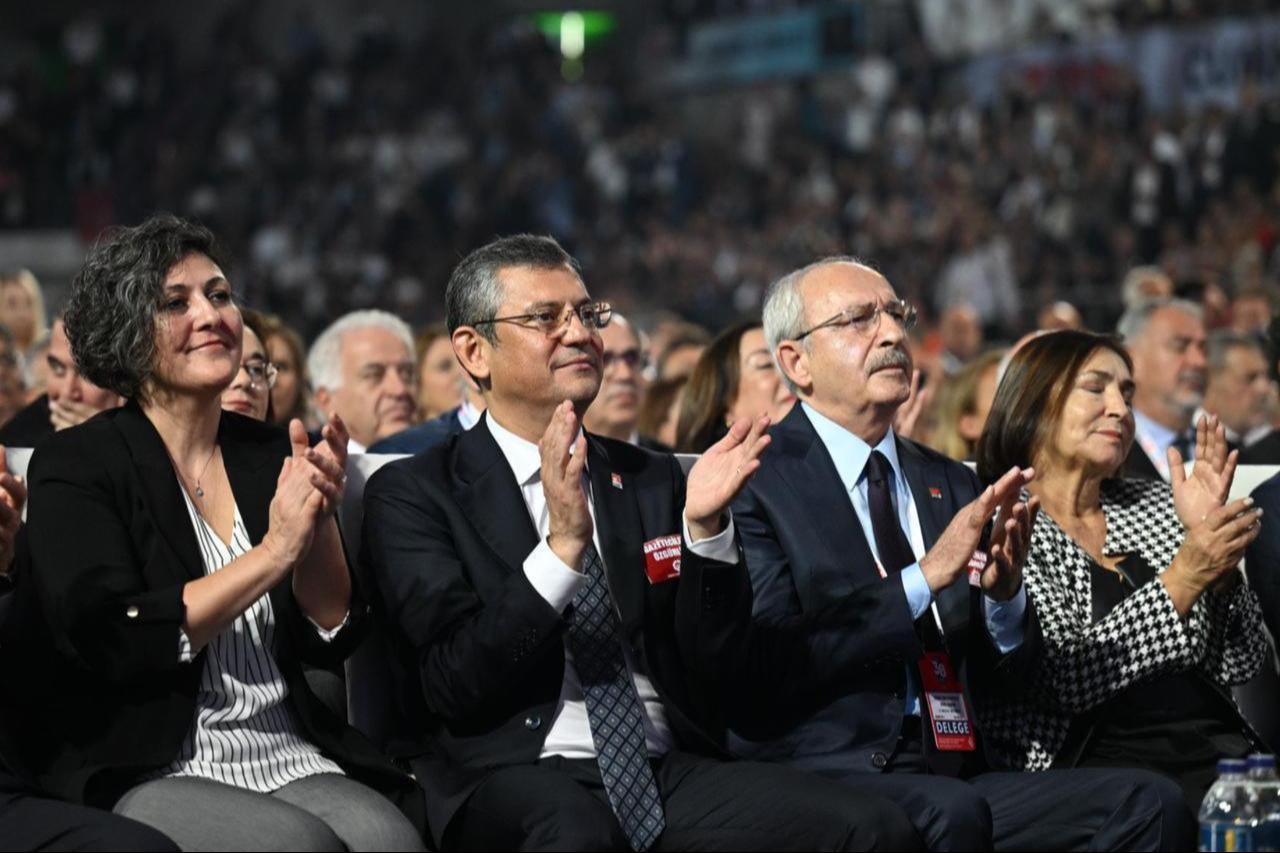
The 38th Ordinary Congress of CHP, held on Nov. 4–5, 2023, in Ankara, marked a watershed moment in the party’s history.
It was the culmination of months of tension between Kilicdaroglu’s traditionalists and Ozel’s reformists.
Voting drama
The first round of voting produced a razor-thin result: Ozgur Ozel secured 682 votes, while Kilicdaroglu trailed narrowly with 664. Because neither candidate achieved an outright majority, the contest went to a second round. There, the tide shifted decisively— Ozel triumphed with 812 votes against Kilicdaroglu’s 536.
For the first time in CHP’s century-long history, a sitting chairperson was defeated and removed by the party’s own congress rather than stepping down voluntarily.
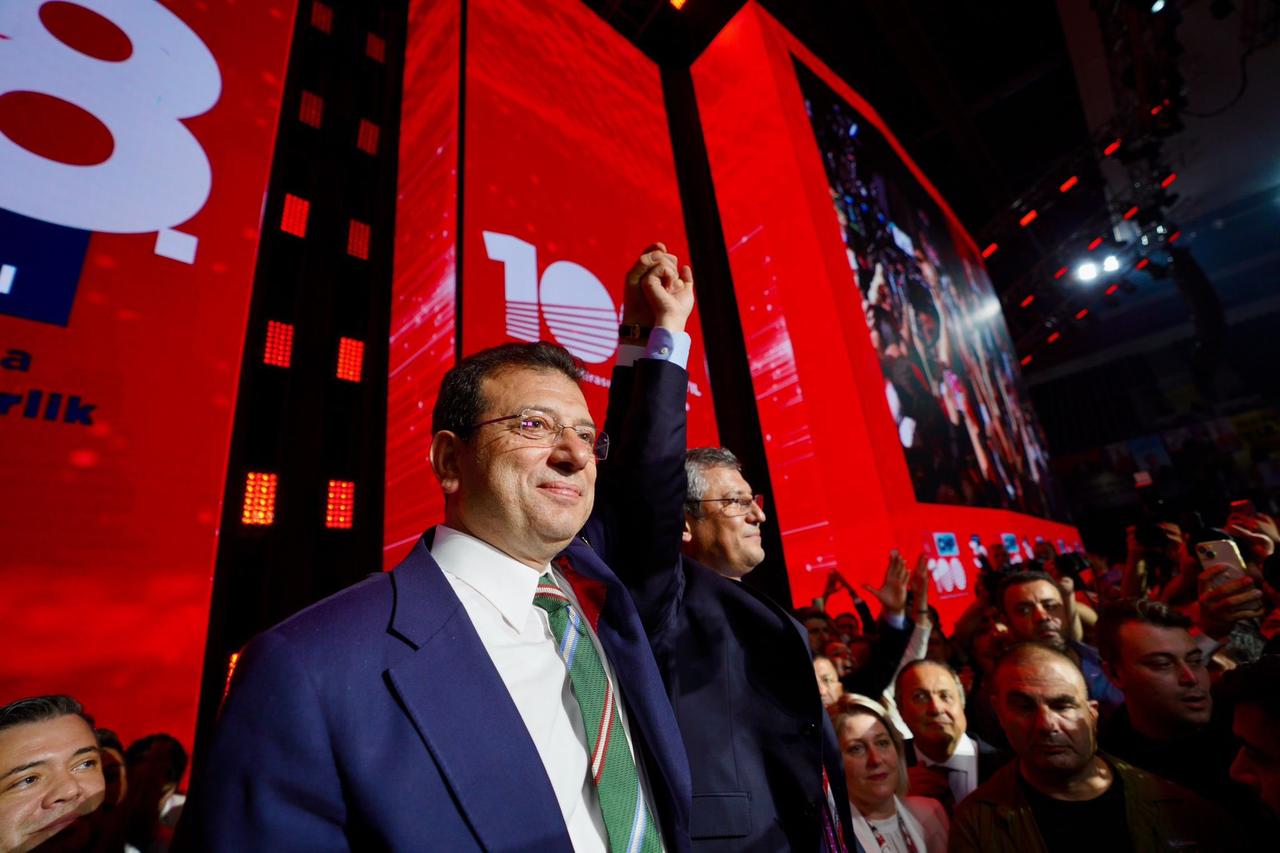
Imamoglu’s key role
Ekrem Imamoglu presided over the congress as chair of the session, reinforcing his reputation as a behind-the-scenes power broker. While Ozel formally won the leadership, Imamoglu’s presence underscored that the call for change had not only grassroots momentum but also visible backing from one of the party’s most popular figures.
In a symbolic gesture, Kilicdaroglu left the congress hall before the official results were declared. He later congratulated Ozel on social media but avoided direct confrontation or a public farewell speech. For many observers, this silent departure reflected both dignity and unresolved bitterness.
Although the congress was meant to close the chapter on Kilicdaroglu’s long leadership, it instead marked the beginning of a deeper legitimacy struggle that would soon spill into the courts.
The November 2023 congress that elevated Ozgur Ozel to the leadership did not end the disputes inside CHP. Instead, it opened a new front: the courtroom. A group of delegates and former party officials challenged the legality of the congress, filing lawsuits that questioned whether Ozel’s leadership was valid at all.
The plaintiffs claimed that:
In Turkish legal terms, mutlak butlan implies that a procedure is void from the beginning, as if it never occurred. If applied, Ozel’s election would be considered legally non-existent.
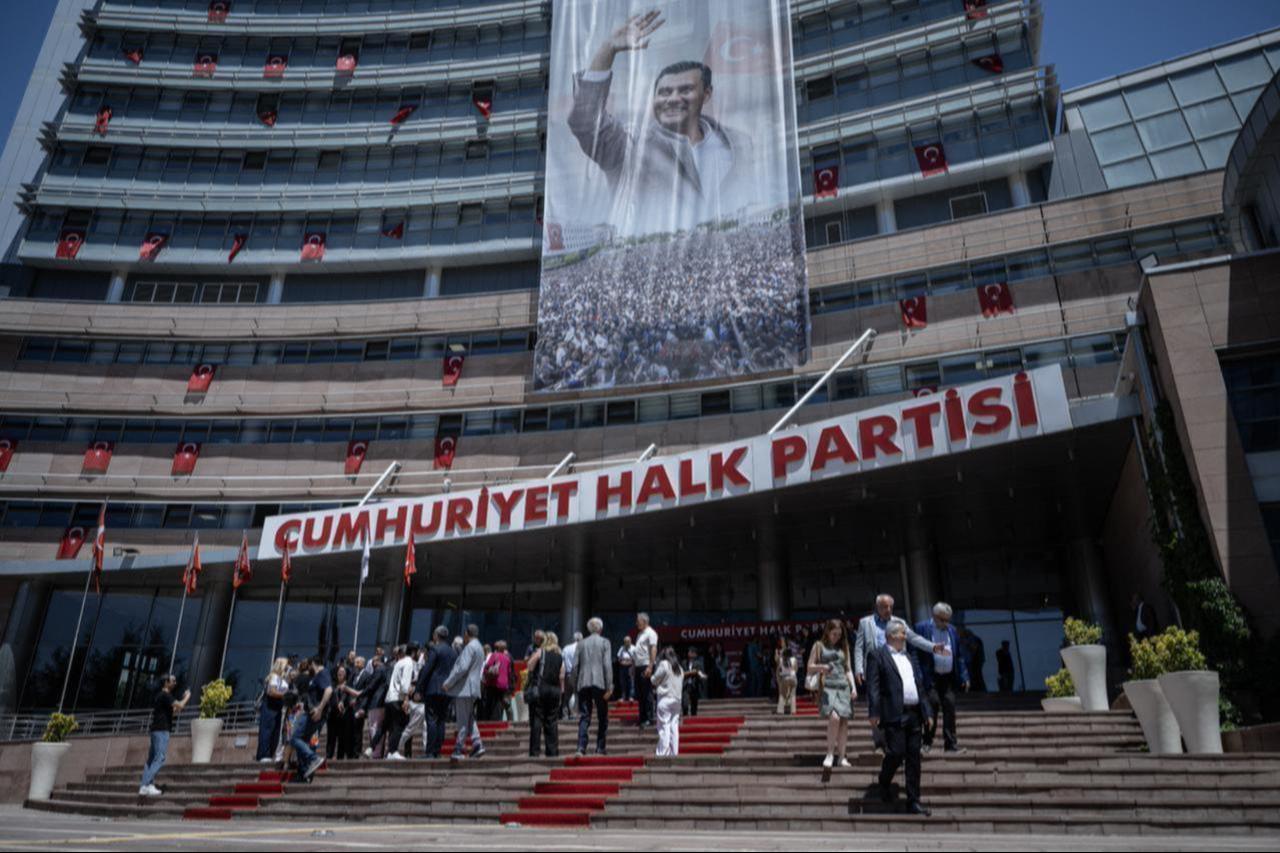
Court process
The cases were consolidated at Ankara’s 42nd Civil Court of First Instance. Judges even requested documents from Istanbul’s controversial provincial congress for comparison, suggesting that they saw patterns worth examining across multiple CHP elections.
On Sept. 15, the court held a major hearing but refrained from issuing a decision. The trial was adjourned to Oct. 24, keeping the party in suspense. Crucially, the court did not impose an interim injunction, meaning Ozel and his team remained in charge pending a final ruling.
Possible outcomes
The court faced four scenarios:
The stakes were immense. If the court ruled in favor of absolute nullity, CHP could be thrown into chaos, with Kilicdaroglu unexpectedly back at the helm or a court-appointed trustee steering the party to a new congress. If the lawsuits failed, Ozel’s leadership would gain a stamp of legal legitimacy, weakening the traditionalist bloc’s ability to challenge him.
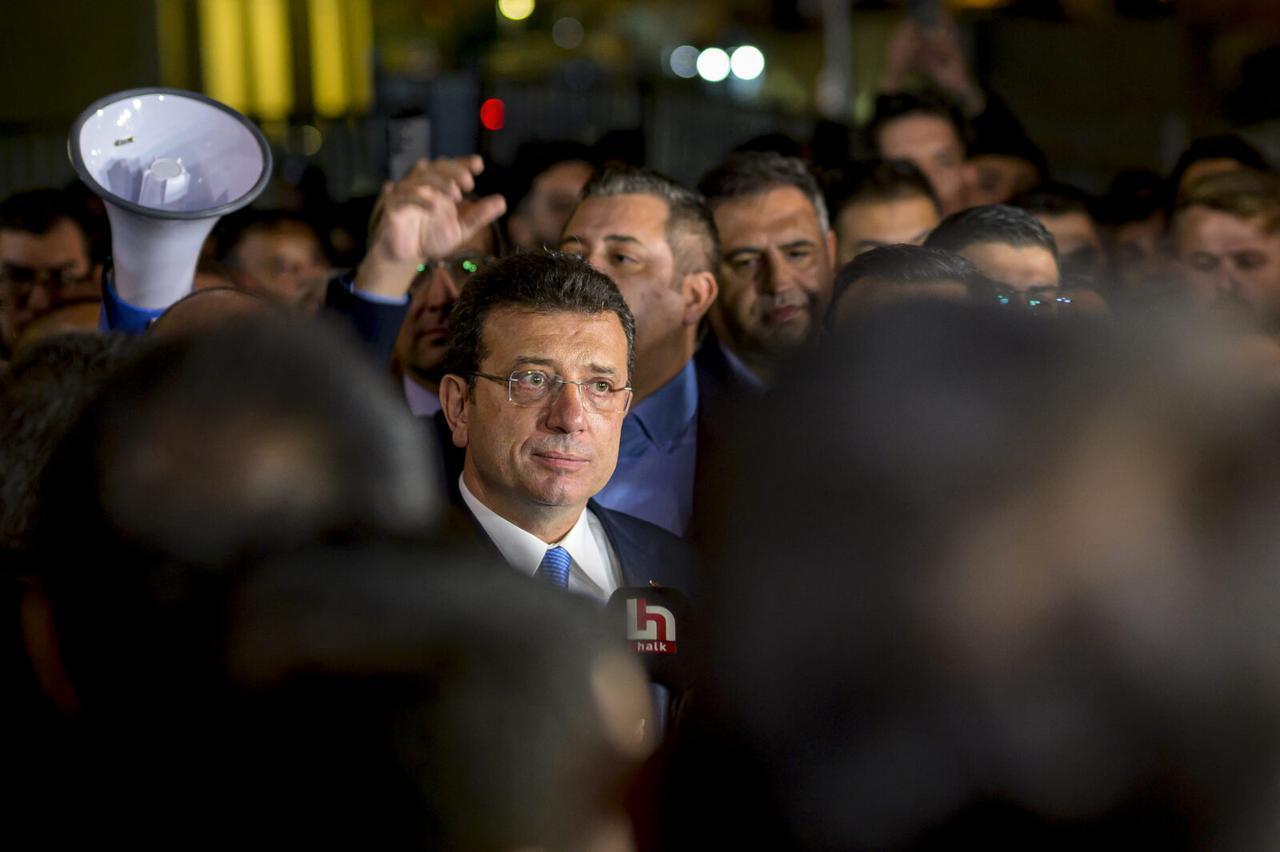
By 2025, the internal turbulence in CHP collided with a sweeping legal offensive that struck at the heart of its strongest figure: Imamoglu.
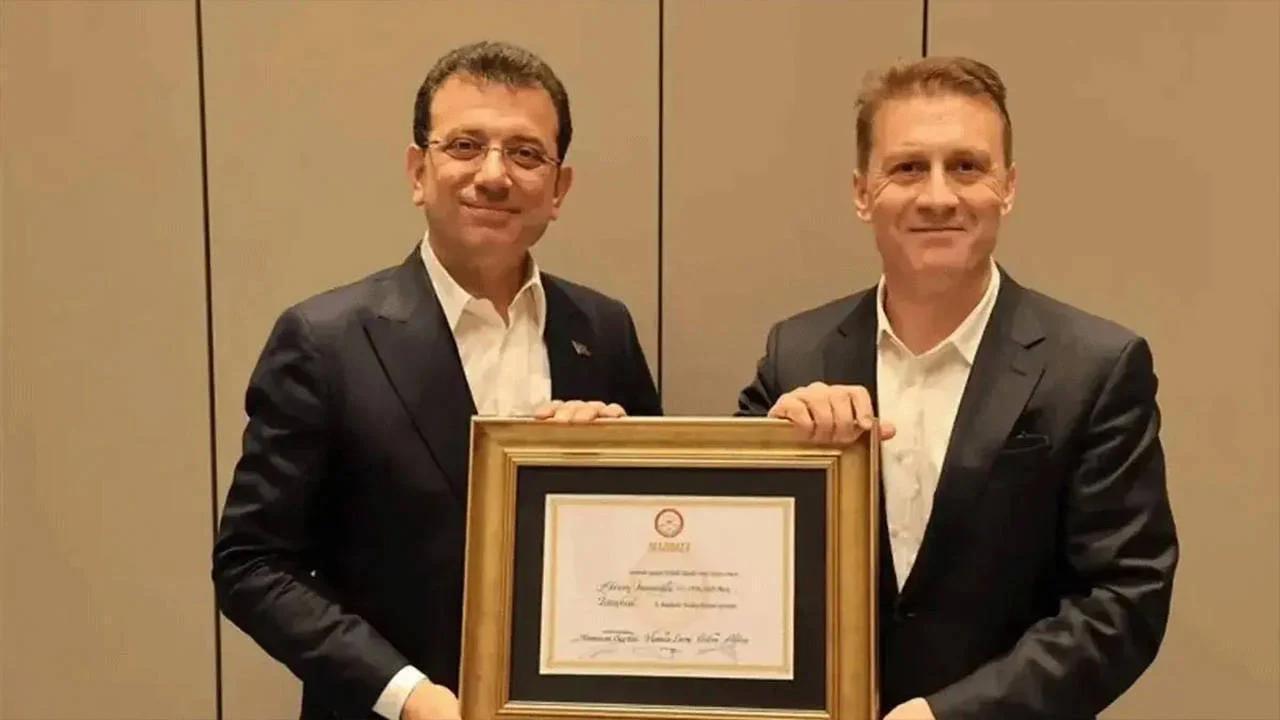
The 'Clean Hands' operation
In March 2025, prosecutors launched what they called the “Clean Hands” operation, targeting alleged corruption and organized crime inside the Istanbul municipality.
The corruption case was only part of Imamoglu’s legal troubles. Prosecutors also:
Several detained figures turned state’s witnesses under “repentance” provisions, providing testimony that prosecutors claimed directly implicated Imamoglu. They alleged a bribery network linked to municipal tenders and resources.
Political shockwaves
The arrest sent shockwaves through CHP and Turkish politics at large.
The imprisonment of Imamoglu, long seen as CHP’s strongest electoral weapon, created both a vacuum and a rallying point inside the party.
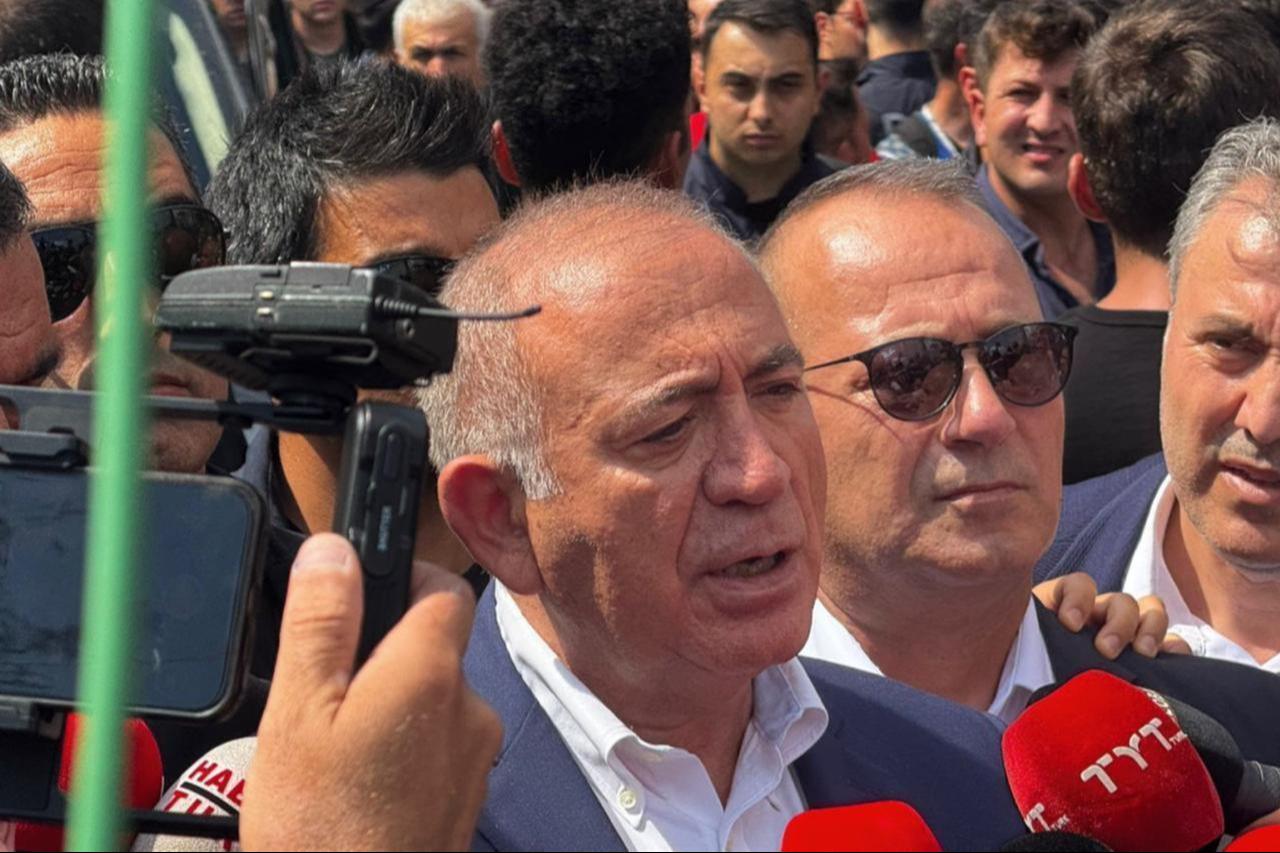
By mid-2025, CHP faced an unprecedented internal showdown when external authorities intervened in Istanbul’s party apparatus, escalating tensions between factions.
Appointment of a trustee: Political or legal?
In mid-2025, Istanbul’s 45th Civil Court of First Instance removed the provincial leadership of CHP and appointed Gursel Tekin as trustee. This unprecedented move stirred intense debate over external interference in party affairs.
CHP members mobilized quickly to resist the trustee’s authority:
Kilicdaroglu's reemergence signal
After a period of silence, former leader Kemal Kilicdaroglu returned to the stage with a pointed statement: “I will not let CHP be handed over to a trustee.”
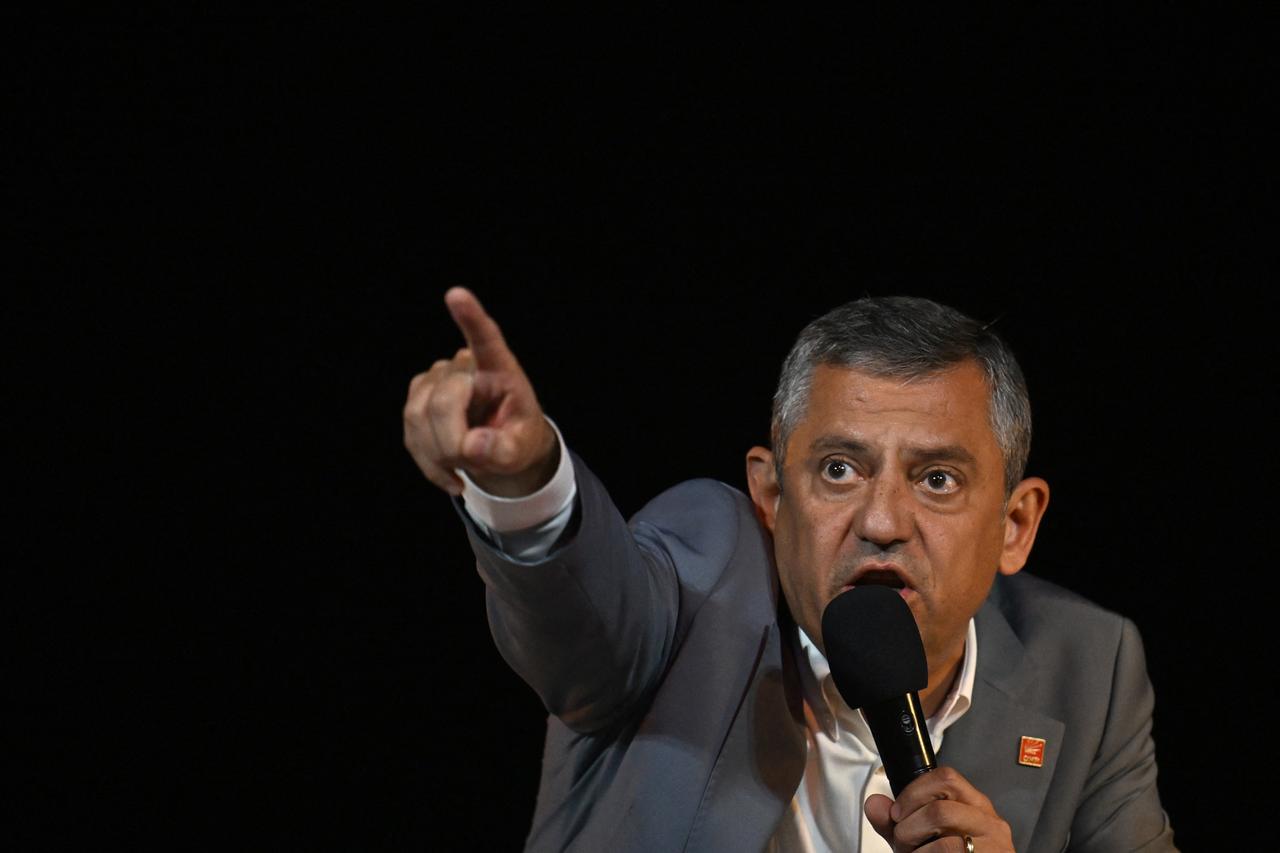
Ozgur Ozel’s open challenge
Meanwhile, CHP’s incumbent leader Ozgur Ozel reacted strongly to the trustee appointment:
Peace negotiation attempts
Some CHP MPs attempted to mediate between the two factions:
The internal congress disputes, corruption investigations, and trustee crises in CHP have not only fueled intra-party tensions but also triggered defections among some members and mayors. In recent months, particularly among local administrators, the shift toward AK Party has become increasingly noticeable.
Who has switched so far?
By late 2025, CHP found itself at a critical crossroads, with internal disputes threatening not only party unity but also the broader trajectory of Türkiye’s opposition landscape.
The leadership transition, corruption investigations, trustee appointments, and judicial challenges had collectively pushed the party into uncharted territory.
Oct. 24 court hearing: What’s at stake?
The Ankara 42nd Civil Court of First Instance scheduled a pivotal hearing on Oct. 24. The court consolidated cases challenging both the 38th Ordinary Congress (Nov. 4-5, 2023) and the 21st Extraordinary Congress (April 6).